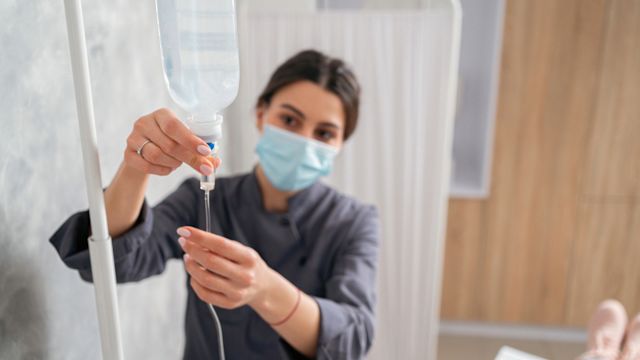Updated on March 17, 2025
Primary immunodeficiency (PI) refers to a group of over 550 genetic disorders that affect the immune system. PI is caused by genetic abnormalities that may be inherited or occur spontaneously. These conditions are also known as primary immunodeficiency disorders (PIDDs). The term inborn errors of immunity (IEI) is also used, though not all PI are inborn (inherited), and in many cases, the exact genetic causes are not fully understood.
When a person has PI, some part of the immune system does not function correctly. This causes a person with PI to be more susceptible to infections, and more likely to experience infections that are severe, difficult to treat, or recur after treatment. They may also be more susceptible to uncommon infections, certain types of cancer, and organ damage.
Treating PI with immunoglobulin therapy
Immunoglobulins (also called antibodies) are proteins that attach to harmful or foreign substances that enter the body. These harmful or foreign substances are called antigens. Examples include viruses, disease-causing bacteria, parasites, and chemicals. Antibodies mark antigens as something the immune system needs to destroy or remove.
Immunoglobulin replacement therapy is one of the most commonly used treatments for PI. This therapy involves regular infusions of a solution containing immunoglobulins collected from blood donors. These infusions help the immune system function better and help the body fight infections.
Intravenous and subcutaneous infusions
Immunoglobulin replacement therapy can be administered in two ways—intravenous infusions and subcutaneous infusions.
Intravenous immunoglobulin (IVIg) is administered with a needle inserted into a vein. These infusions are typically given at a healthcare provider's office or hospital every 3 to 4 weeks, with each infusion taking approximately 3 hours (but the appointment itself will take longer). Sometimes an infusion can be given by a home healthcare provider.
Subcutaneous immunoglobulin (SCIg) is administered with a needle inserted into a layer of fatty tissue under the skin, usually in the abdomen, thighs, or upper arms. There are two types of SCIg—conventional and facilitated. Both types can be self-administered at home after training from a healthcare provider.
The dosing schedule for conventional SCIg can range from daily infusions to one infusion every two weeks. The time for infusions will depend on the dosages being given.
Facilitated SCIg contains an additional medication that allows for a larger dose of immunoglobulin to be delivered at one time. These infusions take 1 to 2 hours and can be given every three to four weeks.
Some people may find SCIg easier to adhere to because it involves fewer healthcare appointments and can be administered at home.
SCIg is also associated with fewer infusion side effects.
With IVIg, side effects such as headache, chills, nausea, wheezing, muscle pain, joint pain, and vomiting are more common. Sometimes a person will require medication before IVIg infusions. Regardless of what method of administration a person is using, side effects are a topic to discuss with a healthcare provider.
However, it's important to remember that treatment is different for everyone—different approaches to treatment work better for different people, and a person may utilize different therapies during different points in treatment.
Other treatment options for PI
In addition to immunoglobulin therapy, treatment for PI may include the long-term use of medications to treat or prevent infections, such as antibiotic, antiviral, and antifungal medications. Nutritional supplements may be prescribed to treat or prevent malnutrition, which is common among people with PI.
Hematopoietic stem cell transplantation (HSCT), also known as a bone marrow transplant, is a potential cure for some types of PI. However, this procedure is physically demanding (it involves chemotherapy) and it requires a matching donor. Gene therapy, which involves correcting genetic mutations, is an emerging treatment for certain types of PI.
If you have questions about your current treatment or other treatment options for PI, your healthcare provider will be your best source of information.





